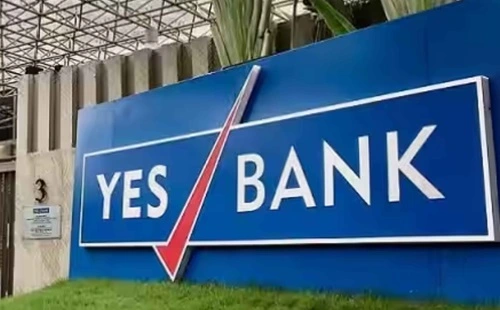The Reserve Bank of India (RBI) recently imposed a monetary penalty of Rs 10,000 on YES Bank for failing to exchange mutilated currency notes. This penalty was levied under the RBI’s “Scheme of Penalties for bank branches including Currency Chests,” which assesses the performance of bank branches in providing customer service. The penalty was based on an inspection at one of YES Bank’s branches, revealing non-compliance with the guidelines for exchanging damaged notes.
Regulatory Framework and Compliance
The RBI’s regulations for handling mutilated notes are designed to ensure that the public can replace damaged currency easily and without significant inconvenience. Banks are mandated to accept and exchange such notes to maintain trust in the currency system and facilitate smooth financial transactions. The penalty imposed on YES Bank indicates a breach of these guidelines, highlighting a lapse in customer service standards and regulatory compliance.
Impact on YES Bank

While the monetary penalty itself is relatively modest, it underscores larger issues within YES Bank’s operational and compliance framework. This incident may affect the bank’s reputation and trustworthiness in the eyes of its customers and investors. The scrutiny also raises questions about the bank’s internal processes and its adherence to regulatory requirements, which are critical for maintaining customer confidence and regulatory standing.
Broader Implications for the Banking Sector
This penalty against YES Bank serves as a reminder to other banks about the importance of compliance with RBI guidelines. It reinforces the necessity for banks to maintain high standards of customer service, especially in areas like currency exchange which directly impact the public. The RBI’s action signals its commitment to enforcing regulations strictly and ensuring that banks uphold the required standards.
RBI’s Role in Ensuring Compliance
The RBI’s proactive approach in penalizing non-compliance reflects its broader strategy to enhance the banking sector’s efficiency and reliability. By enforcing these penalties, the RBI aims to ensure that banks remain vigilant and proactive in adhering to all regulatory guidelines. This not only helps in maintaining public trust but also ensures the stability and integrity of the financial system.
Recommendations for Banks
Banks must prioritize compliance with RBI guidelines to avoid penalties and maintain customer trust. This includes regular training for staff on handling mutilated notes, periodic audits of branch operations, and establishing robust internal controls. By doing so, banks can ensure they provide efficient customer service and adhere to regulatory standards, thereby minimizing the risk of penalties and enhancing their reputation in the market.
Looking Ahead
The RBI’s penalty on YES Bank highlights the ongoing challenges in ensuring compliance across the banking sector. It serves as a call to action for all banks to review and strengthen their operational protocols. By focusing on compliance and customer service, banks can build a more resilient and trustworthy financial ecosystem, benefiting both the institutions and the customers they serve.



















